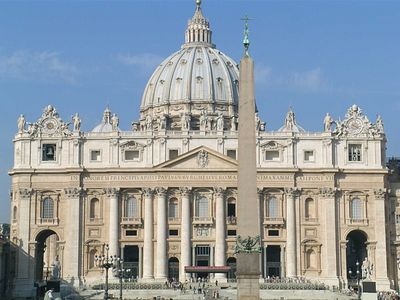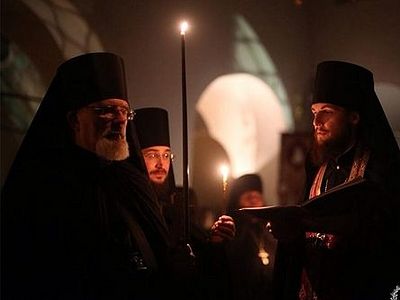Leading Catholic and Orthodox bishops and theologians met in Vienna to continue their initial discussions on the key issue keeping their churches apart: the role of the bishop of Rome, the pope.
The Joint International Commission for Theological Dialogue Between the Orthodox Church and the Roman Catholic Church met in Vienna Sept. 20-27. The meeting focused on "The Role of the Bishop of Rome in the Communion of the Church in the First Millennium" before the churches were divided.
Commission members continued discussing a draft document prepared in 2008 but decided it needed significant revisions, according to a statement released at the end of the meeting.
The current round of talks began in 2006 by focusing on the relationship between primacy -- the authority of the lead bishop -- and "synodality," or the deliberation of the College of Bishops in the West and the synod of bishops in the Eastern churches.
Before moving further, participants at the Vienna meeting decided to form a subcommittee to look at "the theological and ecclesiological aspects of primacy in its relation to synodality."
At a news conference in Vienna Sept. 24, Archbishop Kurt Koch, president of the Pontifical Council for Promoting Christian Unity and head of the Catholic delegation, said, "I think there is certainly a recognition that in the early days of the church, there was a practice or an order of things in which Rome had a special role, a primary role.
"We still have to speak about what that meant and implied," the archbishop said, according to the news agency Reuters.
Metropolitan John of Pergamon, the Orthodox co-chairman of the commission and representative of the Ecumenical Patriarchate of Constantinople, told reporters, "We are still studying the first millennium; we have not reached a conclusion yet."
However, he said, Catholics and Orthodox commission members have agreed that the bishop of Rome had a "special role" in the church, but "the bishop of Rome did not operate without consultation with other bishops."
After the news conference, some news agencies spoke of a "breakthrough" in the talks, an idea strongly denied by Metropolitan Hilarion of Volokolamsk, head of the Russian Orthodox delegation at the talks.
"The Orthodox-Catholic Commission meeting in Vienna has made no 'breakthrough' whatsoever," he said in a statement Sept. 27, which was published on the website of the Russian Orthodox Moscow Patriarchate.
"For the Orthodox participants, it is clear that in the first millennium the jurisdiction of the bishop of Rome was exercised only in the West, while in the East, the territories were divided among four patriarchs -- those of Constantinople, Alexandria, Antioch and Jerusalem," Metropolitan Hilarion wrote.
"The bishop of Rome did not exercise any direct jurisdiction in the East in spite of the fact that in some cases, Eastern hierarchs appealed to him as arbiter in theological disputes," the Russian Orthodox leader wrote.
However, he said, appeals to the pope by Eastern bishops "were not systematic and can in no way be interpreted in the sense that the bishop of Rome was seen in the East as the supreme authority in the whole universal church."


